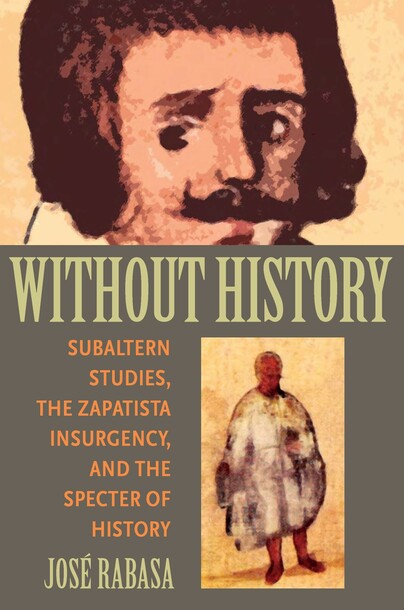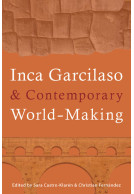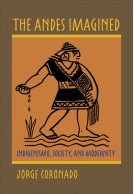Google Books previews are unavailable because you have chosen to turn off third party cookies for enhanced content. Visit our cookies page to review your cookie settings.
Without History (Paperback)
Subaltern Studies, the Zapatista Insurgency, and the Specter of History
Imprint: University of Pittsburgh Press
Series: Illuminations
Pages: 368
ISBN: 9780822960652
Published: 27th June 2010
Script Academic & Professional
Series: Illuminations
Pages: 368
ISBN: 9780822960652
Published: 27th June 2010
Script Academic & Professional
This book will be reprinted and your order will be released in due course.
You'll be £45.00 closer to your next £10.00 credit when you purchase Without History. What's this?
+£4.99 UK Delivery or free UK delivery if order is over £40
(click here for international delivery rates)
Order within the next 2 hours, 19 minutes to get your order processed the next working day!
Need a currency converter? Check XE.com for live rates
(click here for international delivery rates)
Order within the next 2 hours, 19 minutes to get your order processed the next working day!
Need a currency converter? Check XE.com for live rates
On December 22, 1997, forty-five unarmed members of the indigenous organization Las Abejas (The Bees) were massacred during a prayer meeting in the village of Acteal, Mexico. The members of Las Abejas, who are pacifists, pledged their support to the Zapatista Army of National Liberation, a primarily indigenous group that has declared war on the state of Mexico. The massacre has been attributed to a paramilitary group composed of ordinary citizens acting on their own, although eyewitnesses claim the attack was planned ahead of time and that the Mexican government was complicit.In Without History, Jos\u00e9 Rabasa contrasts indigenous accounts of the Acteal massacre and other events with state attempts to frame the past, control subaltern populations, and legitimatize its own authority. Rabasa offers new interpretations of the meaning of history from indigenous perspectives and develops the concept of a communal temporality that is not limited by time, but rather exists within the individual, community, and culture as a living knowledge that links both past and present. Due to a disconnection between indigenous and state accounts as well as the lack of archival materials (many of which were destroyed by missionaries), the indigenous remain outside of, or without, history, according to most of Western discourse. The continued practice of redefining native history perpetuates the subalternization of that history, and maintains the specter of fabrication over reality.Rabasa recalls the works of Marx, Lenin, and Gramsci, as well as contemporary south Asian subalternists Ranajit Guha and Dipesh Chakrabarty, among others. He incorporates their conceptions of communality, insurgency, resistance to hegemonic governments, and the creation of autonomous spaces as strategies employed by indigenous groups around the globe, but goes further in defining these strategies as millennial and deeply rooted in Mesoamerican antiquity. For Rabasa, these methods and the continuum of ancient indigenous consciousness are evidenced in present day events such as the Zapatista insurrection.
Other titles in the series...
Other titles in University of Pittsburgh Press...





















